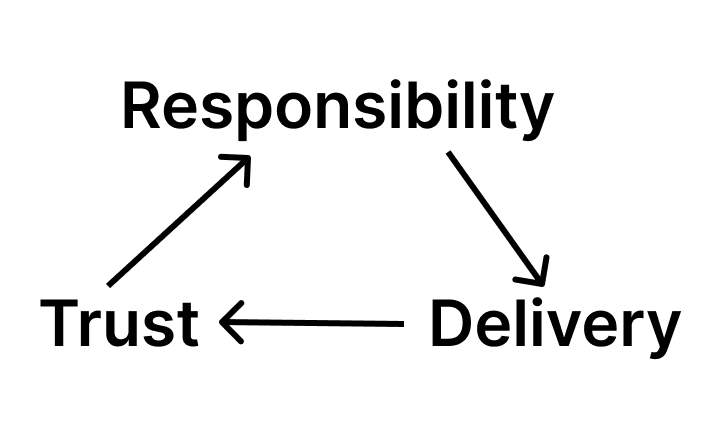Join 790+ others who get our best writing and interviews on how to level up your product skills as early career PMs.
2023 has been flying by so fast and I am losing track of which month I am in. Yesterday, I thought I was still living in the month of July.
Before I know it, 2023 is going to end and I thought this would be a good time to reflect.
Hey guys 👋Deekshit here and for those of you new here, I joined Life360 as a product manager 6 months ago. Thought this would be a good time to share my learnings as a product manager in a growth B2C company.
Here are my top learnings so far 👇
Earn Trust
Product Managers have the responsibility to drive a product’s vision and roadmap. That responsibility comes from years of experience and success of the previous projects that they have driven.
For a new PM/APM it’s hard to quickly get the same responsibilities. There’s no evidence that I can successfully drive a feature’s roadmap right away. I understood that I need to earn my trust from not just my manager but various stakeholders such as Engineering, Marketing & Design to drive projects.
I realised that as a PM, one of the most important things that will help me achieve this responsibility is by gaining trust from my stakeholders.
How much do my stakeholders trust me in driving the vision for my feature?
So, How to build this trust?
Here’s my VP advice
Say yes to all the problems thrown at you and solve them to the best of your abilities. The more problems you can solve, the more problems people will want you to solve.
Build strong work ethic. Ensure that the work you deliver is of high quality. Work that you are proud of sharing.
In short, deliver on your responsibilities to earn trust which in turn helps you get higher/better responsibilities.
Therefore by creating a sense of trust among all the stakeholders by always outperforming on the problems given to me, I’ve realised I’ll be trusted to take on much bigger projects.
Always keep pitching
When I started working on some of the problems at the company, I had interesting approaches/solutions and was sharing them with my fellow peers.
People acknowledged these ideas but it never went past the acknowledgement. When I shared this with a fellow Principal PM and asked for his advice.
His advice was very insightful.
If you have an idea, you need to gather as much evidence as possible to support the success of this idea. (Data, Customer interviews, Competitor Analysis)
Go to a person at a higher level than you that would listen to you and convince them to support you on this idea. (For example : Discuss the idea with other principal PMs/skip level manager to gain feedback and incorporate that into your proposal)
Write up a document that clearly showcases the vision for this idea and how you want to implement it.
Start sharing the document with as many stakeholders as you can to get feedback and buy in from them (Eng, Design, Marketing, etc..)
Pitch it to the person who needs to approve it and share all the evidence and buy-in you’ve got for the idea
Sometimes you can skip steps 2 and 4. But, this advice was a perspective shift for me and changed how I need to think about the way I need to share my ideas to convince someone to implement it.
Not to say that all of my ideas will be accepted, but I at least understand the method of convincing someone to let me implement something and if not I learn from the reasons behind as to why a certain idea might not work.
Constantly exposing my work
As a PM it’s hard to evaluate or track all the different kinds of work I do and the best piece of advice I have received is to constantly expose my research and insights that I get from my customers and share it with various stakeholders. This helps with exposing my work to people and also bringing awareness to the different problems I am working on and see if they can add value anyhow.
Work Life Balance
One thing I have realised is that to work hard and be successful in delivering projects one must put in the time to make it successful. So, the concept of work life balance needs to be perceived in a longer time horizon rather than days. If we think of work-life balance on a daily basis, we might not achieve it because of work pressure. But if we extend it to a weekly/monthly scale it’s easier to achieve it.
You might have to work hard on a project for 4 weeks and then ease your workload for a couple of weeks. Therefore, I’ve realised that some weeks I need to put in 12 hrs/day to ensure that the project is successful and other days I can reduce my workload and I am okay with that.
So these were my learnings from my 6 months as a PM at Life360, if you liked this post and want me to write more of these types of posts. Please like this post as a signal for me to get feedback.
Don’t forget to follow Andy and Deekshit on Linkedin!


